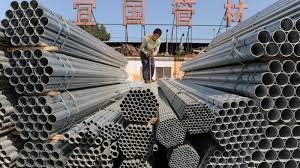Globaltraded.com — Indonesia now preparing for the impact of the new presidential election, that in October 2024 the elected new president will begin to rule and govern, it is natural that there will be a lot of speculation on the potential impact of the new administration on the country’s economic landscape.
While political transitions often stir uncertainties among investors, the anticipated Prabowo Subianto administration appears set to maintain a trajectory that closely aligns with the current economic policies of President Joko Widodo. This article explores why investors should not be alarmed by the upcoming political shift, the continuity expected in economic strategies, and why the time to invest is now.
The impending election has generated a flurry of debate about the possible changes that a Prabowo Subianto administration might bring. However, an in-depth analysis reveals that the transition is unlikely to be as disruptive as some fear. Prabowo, a seasoned politician with a substantial track record, is expected to form a cabinet that largely reflects the economic philosophies and approaches of Jokowi’s administration.
Prabowo’s anticipated cabinet is composed of individuals who have long been aligned with Jokowi’s strategies for economic development. This continuity in leadership suggests that the core economic policies that have been shaping Indonesia’s growth trajectory are set to persist. For investors, this stability means that the business environment will likely remain favorable, with ongoing support for the reforms and initiatives that have been driving economic progress.
Joko Widodo’s administration has been marked by significant reforms aimed at bolstering Indonesia’s business environment. From streamlining regulations to enhancing infrastructure and fostering a stable macroeconomic climate, Jokowi’s policies have been pivotal in positioning Indonesia as a burgeoning market for both domestic and international investors.
The Prabowo administration, given its anticipated alignment with Jokowi’s economic approach, is expected to continue these policies. This includes maintaining efforts to improve regulatory frameworks, invest in infrastructure projects, and support business growth across various sectors. Investors can thus expect a stable and supportive environment, which is critical for long-term planning and investment decisions.

One area where some changes might occur is the ambitious relocation of Indonesia’s capital to East Kalimantan. The scale of this project, while significant, is unlikely to pose a major threat to the broader investment climate. There has been speculation that Prabowo might adjust the pace of this project, potentially impacting investors specifically involved in the property and construction sectors related to the new capital.
However, it is important to note that the impact of such adjustments will be relatively contained. The new capital project affects a specific subset of investors, primarily those in real estate and construction. The broader market, including sectors like mining and consumer goods, remains largely unaffected by developments related to the new capital. Thus, while some property investors might experience shifts, the overall investment landscape continues to offer opportunities in other sectors.
Why Investing Now Makes Sense
Given the expected continuity in economic policies and the limited impact of potential changes to the new capital project, the current investment climate in Indonesia remains robust. Investors are encouraged to take advantage of the favorable conditions rather than delaying their investments. The potential risk of missing out on lucrative opportunities is significant if action is deferred.
The Indonesian market, supported by a stable policy environment and ongoing reforms, presents compelling reasons for investment. The alignment of Prabowo’s anticipated policies with those of Jokowi ensures that the economic strategies fostering growth and stability will persist. Consequently, now is an opportune time for investors to commit to the Indonesian market before opportunities are seized by others.
Indonesia’s economic outlook remains positive despite the political transition. The country’s strategic location, growing consumer market, and ongoing infrastructure investments continue to enhance its attractiveness to global investors. The commitment to maintaining existing economic policies and the focus on stability provide a solid foundation for business growth and investment.
Moreover, Indonesia’s diverse economy, encompassing sectors beyond real estate and construction, offers numerous avenues for investment. From natural resources and manufacturing to technology and consumer goods, the country’s economic landscape is rich with opportunities. Investors should consider these sectors and align their strategies with the ongoing economic trends and policies.
As Indonesia prepares for its presidential election in November 2024, the expected continuity in economic policies under a Prabowo administration should reassure investors. The alignment with Jokowi’s strategies and the limited impact of potential changes to specific projects, such as the new capital, suggest that the investment climate will remain favorable. Investors should act now to capitalize on the stable and supportive environment before opportunities are claimed by others. The Indonesian market continues to offer promising prospects for those ready to seize them.

























































